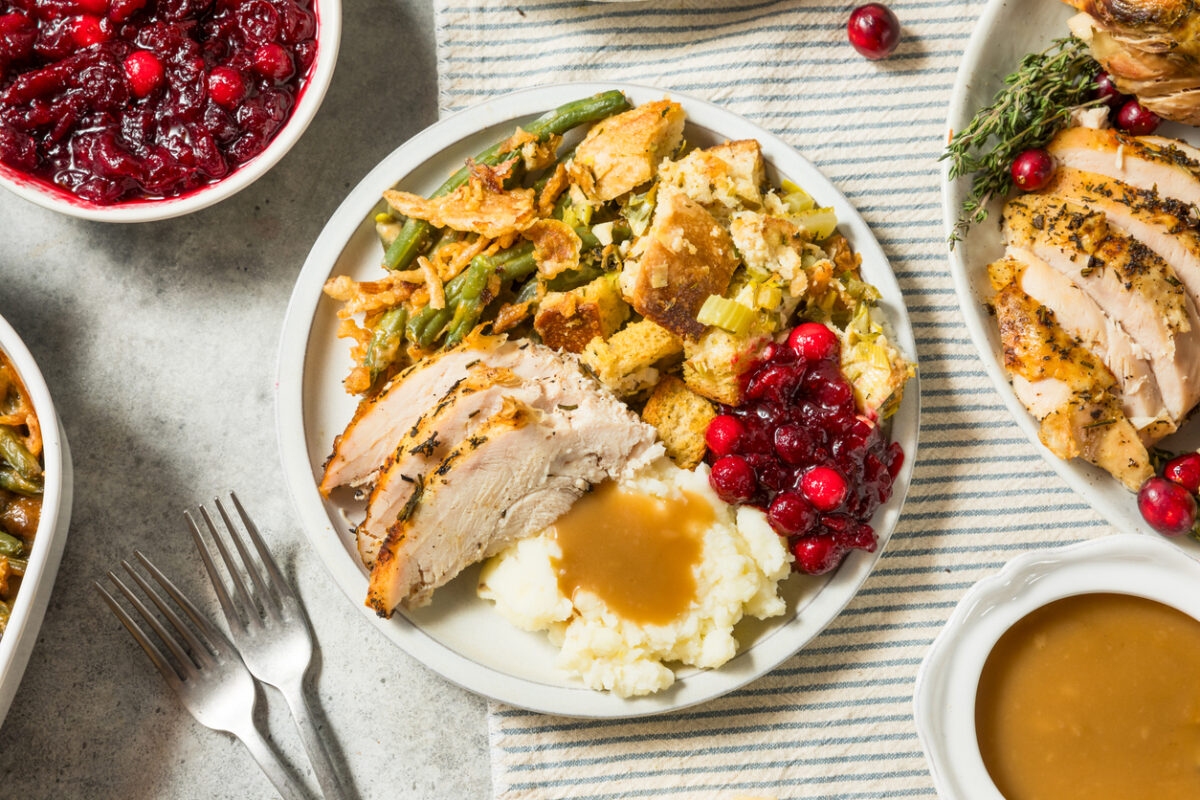Overview:
- Bird flu outbreaks hit poultry farms in Michigan and nationwide, cause major losses.
- In Michigan, more than 300,000 turkeys were affected by avian influenza since October.
- Reduced supply is pushing turkey prices for retailers higher ahead of Thanksgiving.
by JANELLE D. JAMES
Bridge Michigan
This story was originally published by Bridge Michigan, a nonprofit and nonpartisan news organization. To get regular coverage from Bridge Michigan, sign up for a free Bridge Michigan newsletter here.
Michigan and U.S. turkey farmers are losing millions of birds to bird flu this year, pushing wholesale prices higher just as shoppers prepare for Thanksgiving.
Despite the losses, industry experts say careful planning and frozen stock will keep grocery shelves stocked. But it might cost as much as $31 for a 15-pound bird, according to one projection.
The highly pathogenic avian influenza, or bird flu, has hit poultry flocks across the country, especially in late winter during migration season, when outbreaks tend to spike.
For farmers, it’s a tremendous loss. Since there’s no cure for bird flu, farmers are required to “depopulate” or kill the infected birds to prevent the disease from spreading further.
Since October, 316,100 Michigan turkeys have been affected at commercial farm operations in Ottawa and Allegan counties, according to data from the U.S. Department of Agriculture.
Bird flu spreads easily between flocks through several pathways, including wild birds, direct contact with sick animals, contaminated equipment and germs carried on workers’ clothing and shoes.
Since the outbreak began in 2022, 18.7 million turkeys have been affected nationwide, including 606,601 turkeys in September, the Michigan Farm Bureau reported.
“We have seen populations go down slightly. We are at a 3% downturn. So certainly HPAI is having an effect,” said Pierce Bennett, livestock industry relations specialist for the Michigan Farm Bureau.
The USDA projects that about 195 million turkeys will be raised this year, down from 200 million turkeys in 2024. Production for ready-to-eat turkey has also declined from 5.12 billion pounds last year to a projected 4.79 billion pounds for this year.
Prices on the rise
Fewer turkeys available means retailers are now seeing higher costs per pound.
The USDA projects that the wholesale price for frozen turkeys will increase to an average of $1.34 per pound, up from last year’s average of 94 cents per pound, but down from the 2023 average of $1.40 per pound.
An analysis by Purdue University suggests prices could climb even higher. Based on past trends between wholesale and retail prices, their model suggests the average price for a whole turkey in November will be about $2.05 per pound, roughly 25% higher than last year. That means a 15-pound turkey would cost around $31 this Thanksgiving.
The wholesale price is the amount retailers pay when purchasing products in bulk. Retailers set their own prices for consumers afterward.
“Wholesale prices have increased as the industry navigates animal health issues and tighter supplies,” said Alex Davidson, senior director of public affairs for the National Turkey Federation. “However, most consumers buy frozen turkeys for the holidays and grocery stores routinely discount those birds.”
At Walmart, the price for a whole turkey ranges from 84 cents to $1.47 per pound, depending on its size. At Meijer, prices range from 49 cents to $2.99 per pound for a whole turkey. And at Kroger, customers are paying between 89 and 99 cents per pound.
“While an outbreak disrupts production, turkey farmers and processors are resilient and experienced in managing these challenges,” Davidson said.
“Between strong frozen stock and careful planning by processors and retailers, the industry can ensure there’s plenty of turkey available for consumers this holiday season.”
This article first appeared on Bridge Michigan and is republished here under a Creative Commons Attribution-NoDerivatives 4.0 International License.
THE LATEST FROM PLANET DETROIT
VOICES: Time for Congress to step up for the Great Lakes
In Washington, D.C., Great Lakes Day unites Congressional leaders in bipartisan support for the Great Lakes, yet expert Mike Shriberg warns the Great Lakes Restoration Initiative alone cannot safeguard water quality.
Wayne County radioactive waste trial ends with attorney’s warning over future Manhattan Project shipments
Wayne Disposal attorneys argue plaintiffs failed to prove the landfill is harming residents, while lawyers for local communities say it’s unreasonable to dispose of radioactive waste in a highly populated area near the Great Lakes.
Judge fines DTE, its Zug Island facility $100 million for Clean Air Act violations
The EPA sought a $140 million civil penalty in the lawsuit, which DTE lawyers said amounts to a shutdown order on Zug Island.





